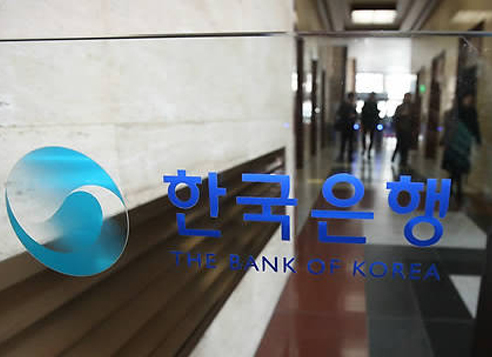Smaller South Korean firms lagged far behind their larger counterparts in debt service capability, the country's central bank said Thursday, in the latest sign of a deepening polarization of corporate performance.
The interest coverage ratio of all South Korean firms stood at 9 in the first half of this year, up from 6.8 from a year earlier, the Bank of Korea said in a report, citing data compiled by credit appraiser NICE Information Service.
The ratio -- a firm's operating profit divided by its interest costs -- measures the company's ability to pay interest on outstanding debt. A reading higher than 1 means the firm earns more than what it has to pay in interest, while a number below 1 means it can't cover its interest with its operating profit.
Still, the ratio fell to 2.2 in the first half of this year if firms that account for the upper 10 percent in operating profit are excluded, the BOK said.
 |
The Bank of Korea (Yonhap) |
The finding suggests that the performance of tech giant Samsung Electronics Co. and other big players have a profound effect on a statistical average of all South Korean corporate performances.
Operating profit of Samsung Electronics came to 14.1 trillion won ($12.4 billion) in the April-June period, up 72.7 percent from 8.14 trillion won posted last year. The operating profit translates into Samsung earning 152.9 billion won every day over the April June period, or 6.3 billion won per hour
The interest coverage ratio of all South Korean firms has risen in recent years. The ratio came to 6.7 in 2016, up from 3.8 in 2012. But the numbers, excluding firms in the upper 10 percent in operating profit, stood at 1 in 2016, up from 0.1 in 2012.
The data shows that many companies had difficulties in meeting their interest burdens with their operating profits. (Yonhap)








